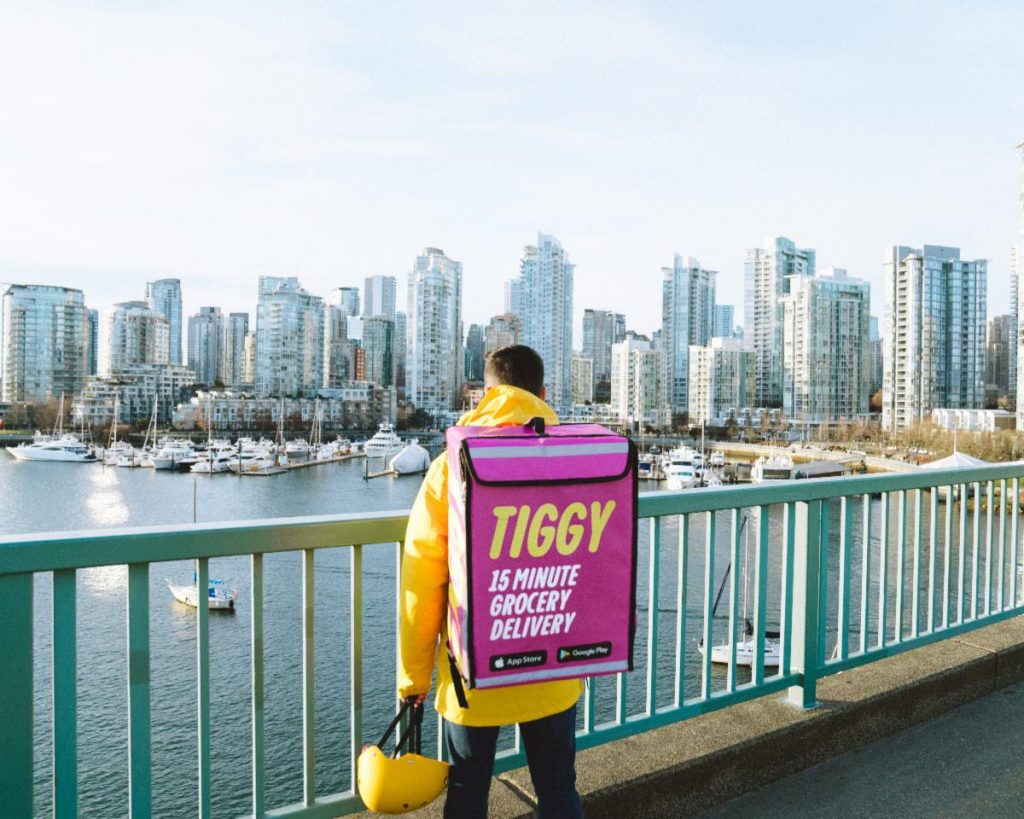
If you have been walking around campus for the past month, you have definitely been approached by someone offering you a 30% off coupon for TIGGY. TIGGY, a Vancouver based start-up, provides ultrafast grocery delivery that gets you your groceries to your doorstop in 15 minutes without delivery charges. It has been gaining popularity in areas near Downtown Vancouver due to its convenience and affordability and with its new expansion to UBC, it is sure to be a hit with students who are too busy to make a trip to the grocery store.
When I first heard about TIGGY, I had many questions. Isn’t it bad to order groceries in small amounts because they would have to make more trips? Wouldn’t more trips mean more transport emissions? How does it deal with groceries that are not bought due to small order sizes? It didn’t seem very sustainable until I googled the start-up.
Each year 35.5 million tonnes of food produced in Canada is wasted creating 56.6 million tonnes of greenhouse gas emissions, which is a whopping 4% of the national GHG emissions. A study by the University of Arizona criticizes bulk-buying of groceries to be a major reason for food wastage as shoppers tend to buy way more than they need usually because buying in bulk is cheaper. However, they do not take in to account if they would be able to consume that much before it gets spoilt and are forced to dispose of it. TIGGY provides this reasoning to convince potential customers to switch to getting the exact amount of grocery one needs through its ultrafast service and says that they will “do it again and again, when necessary”. Being a delivery service, TIGGY is expected to be mindful of the environment in its transport and does so by using e-bikes that they obtain from their partnership with the e-bike company, Zygg.
Another way TIGGY aims to reduce food waste is through its partnership with Too Good To Go, which is a B.Corp platform that connects consumers to surplus foods from restaurants and grocery stores. TIGGY sells its nearly expired grocery on this platform in order to avoid disposing of them. Eugene Biskova, a co-founder of TIGGY, believes that with this partnership ‘Tiggy’s food waste can be reduced to 3 per cent”.
By using its partnerships for the sustainable good while providing excellent service to its consumers, TIGGY is definitely on the right path of helping reduce food waste from groceries in Canada.
Sources
https://wrwcanada.com/en/get-involved/resources/food-waste-themed-resources/food-waste-canada-facts
http://www.nzwc.ca/Documents/NZWCSubmissionOnPan-CanadianFrameworkForCombattingClimateChange.pdf
https://news.arizona.edu/story/ua-food-study-shop-more-waste-less
https://www.linkedin.com/feed/hashtag/?keywords=tiggysustainability
https://techcouver.com/2022/04/06/zygg-ebikes-vancouver/